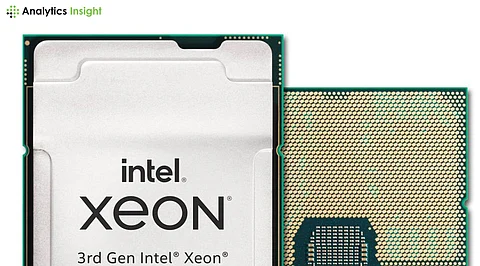

Intel, a leader of the semiconductor industry, once again hit the news with the six-sixth-generation Xeon Server Processors. That unveiling also represents a significant turn of the corporate ship for the technology behemoth – which is, let us not forget, one of the titans of the data center market. Made to deliver a powerful mix of improved productivity and performance, these new Xeon chips exhibit a big leap in the data center computing power.
Leading the latest is Intel's new lineup of Xeon Server Processors tuned to serve a variety of different data center workloads. One version is for storing media and serving websites, the other one is for managing your database and other compute-hungry applications (such as artificial intelligence). The strategic segmentation highlights Intel's determination to deliver what data centre customers need today and into the future, with purpose-built solutions to maximize performance and deliver efficiency for a broad of workloads.
Intel's Xeon Server Processor is also officially introduced at the Computex trade fair in Taipei where Intel CEO Pat Gelsinger went over the many features of the processors. The expanded computing performance of the new processors and their lower power consumption were highlighted by Gelsinger, reflecting Intel's long-standing tradition of innovation to address the changing requirements of our customers. The launch comes at the right time for Intel, as the company continues to build its presence in the data center market using state-of-the-art technology that has a real and widespread positive impact on customers across the globe.
Intel also unveiled its Gaudi 3 AI accelerator chips alongside the Xeon Server Processors, as it laid out its strategy to tap more into the burgeoning AI market. Billed as a "more price friendly" model relative to its rivals, the eight AI chip Gaudi 3 accelerator kit pricing is said to be available at a "fraction" compared to the cost of similar offerings. The price point of US$125,000 for the Gaudi 3 accelerator kit creates an attractive option for enterprises looking to incorporate AI capabilities affordably, while solidifying Intel's position as a major competitor in the AI hardware league.
Aside from data centers, Intel also teased some things it could improve on for consumers, including this look at its next laptop chip, Lunar Lake. Lunar Lake represents a breakthrough in the evolution of next-gen AI PCs, delivering a 40% reduction in power consumption, and new capabilities that will redefine the performance and efficiency benchmark for computers. Taking laptops to previously unattained levels of performance and battery life in a footprint that redefines what a laptop is thanks to Intel Processors such as Lunar Lake scheduled to be shipped in the third quarter.
Intel also shared details on what to expect from its 2025 release structure with Arrow Lake and Panther Lake on the horizon. The launches Intel has planned for a little later in the year will further expand the areas in which Intel competes, keeping the pressure on forcing forward technology and innovating, in order to maintain the lead position it currently holds in the semiconductor world. Gelsinger also waxed poetic about the Lunar Lake future and expressed gratitude to TSMC for its contribution to the futuristic technology that makes these Xeon Server Processors in the first place.
As Intel pushes the bar for AI processing, the industry can't wait to see how its latest products will change data center computing and AI applications. With there relentless pursuit for providing customer-centric value-driven solutions that cater to the numerous requests clients make, Intel appears to be well placed to define the computing future as one of the pioneers in the semiconductor industry.
